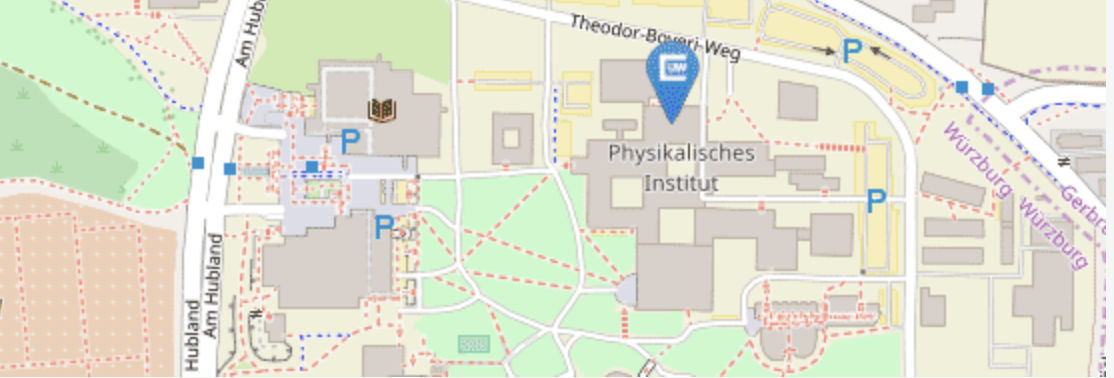HuMaIn
Workshop on Human-Machine Interaction co-located with KI-2024
University of Würzburg, Physics Building, Seminarraum 10.

Workshop schedule. September 24th
- 9:30 — Welcome speech from the organizing commettee. Introduction of the workshop participants.
- 9:35 — “The Number Became Word: Artificial Intelligence and Western Thought”. Plenary Talk by Alexei Grinbaum, Centre de recherche CEA Paris-Saclay.
- 10:30 — Coffe break
- 11:00 — Alexei Tikhonov and Dmitry Sinyavin. Machine Apophenia: The Kaleidoscopic Generation of Architectural Images.
- 11:20 — Sotirios Piliouras, Rob Saunders and Anna Jordanous. Investigating Co-creativity Interaction with AI-Imagery Tools for Ideation.
- 11:40 — Sergei Shteiner. Custom Poetry: An Experiment
- 11:50 — Round Table: Creativity, Inspiration and Chance. Matthias Röder, Alexei Grinbaum. Moderator: Ivan Yamshchikov
- 12:30 — Lunch
- 14:00 — “Computational History: Challenges and Opportunities of Formal Approaches”. Plenary Talk by Jürgen Jost, Max Plank Institute for Mathematics in the Sciences, Leipzig.
- 14:30 — Break-out sections. Moderators: Ivan Yamshchikov, Pascal Meißner, Sharwin Rezagholi.
- 15:30 — Coffee break
- 16:00 — Stefan Schiffer, Milena Rothermel, Alexander Ferrein and Astrid Rosenthal-von der Pütten. Look: AI at Work! Analysing Key Aspects of AI-support at the Work Place
- 16:20 — “Not-so-humanoid Socially Assistive Robots” Plenary Talk by Barbara Bruno, Karlsruhe Institute of Technology.
- 17:20 — Closing remarks by the organizers.
Submit Your Paper
Login to EasyChair, click on ‘new submission’ and choose the track ‘Human-Machine Interaction Workshop’.
Paper Formatting
- Short Paper – up to 4 pages excluding references
- Long Paper – up to 8 pages excluding references
- Formatted according to the Springer LNCS style
Important Dates
- Submission deadline:
July 1July 7, 2024 - Notifications: July 31, 2024
- Camera-ready version: August 20, 2024
- Workshop: September 24, 2024
Aims and Scope
The HuMaIn Workshop at KI-2024 aims to bridge the gap between artificial intelligence (AI) and human-centric disciplines such as the social sciences, psychology, and the humanities. Our objective is to explore and foster advancements in AI that enable software and robots to interact with humans in intuitive, respectful, and engaging ways. By bringing together a multidisciplinary mix of researchers, practitioners, and innovators, we will contribute to the solutions to the task of designing AI systems that enrich human life and society. In an era where AI is increasingly becoming part of everyday life, the need for human-machine interfaces to be safe, friendly, intuitive, and relevant has never been more crucial. HuMaIn will elicit submissions on
- Ethical design principles for human-AI interaction,
- Psychological foundations of human-AI interaction,
- Artistic applications of (generative) AI,
- Emerging trends in human-friendly robot and software interfaces, in particular the application of AI in social robotics and healthcare,
- Social science studies of AI applications, in particular with respect to the effect of AI on political discourse on social media.
The relevance of this workshop lies in its potential to catalyze cross-disciplinary innovations that are not only technologically advanced but also socially and psychologically informed. Our goals include
- Fostering a dialogue between AI-engineers, psychologist, and social scientists,
- Highlighting innovative approaches to human-friendly robot and software interfaces,
- Encouraging collaborative research efforts across disciplines,
- Contributing to the roadmap for ethical and effective human-AI interaction.
Target audience and participation
- Academics and researchers in AI, robotics, social sciences, psychology, and related fields,
- AI and robotics practitioners and developers focused on user experience,
- Policymakers interested in the social implications of AI,
- Students and early-career researchers looking for cutting-edge research directions.
Submission process and criteria
Participants are invited to papers related to the workshop themes. Submissions should contain up to 8 pages (for full papers) and up to 4 pages (for short papers) of content excluding references and be formatted according to the Springer LNCS style. Selection criteria will focus on relevance, originality, and potential to spark interdisciplinary dialogue.
To submit your paper, please use KI-2024 submission link, login to EasyChair, click on the “new submission” and choose the corresponding Track: Human-Machine Interaction Workshop.
Scientific committee
- Prof. Dr. Hilke Brockmann, Constructor University Bremen, Professor of sociology,
- Eva-Maria Gillich, University of Bielefeld, Researcher in art history and visual culture studies,
- Dr. Jeanine Reutemann, Eidgenössische Technische Hochschule Zürich (ETH), Researcher in educational media,
- Dr. Irina Efimenko, Semantic Hub, Lausanne, Founder and CEO, Expert on AI in healthcare,
- Dr. Matthias Röder, Karajan Institute, Director, Researcher on creativity and AI in music, Salzburg,
- Dr. Maria Elena Giannaccini, University of Aberdeen, Lecturer, Researcher in soft robotics, robot sensing, and safe human-robot interaction.
Organizers
- Ivan Yamshchikov, Technical University of Applied Sciences Würzburg-Schweinfurt.
- Pascal Meißner, Technical University of Applied Sciences Würzburg-Schweinfurt.
- Sharwin Rezagholi, University of Applied Sciences Technikum Wien.